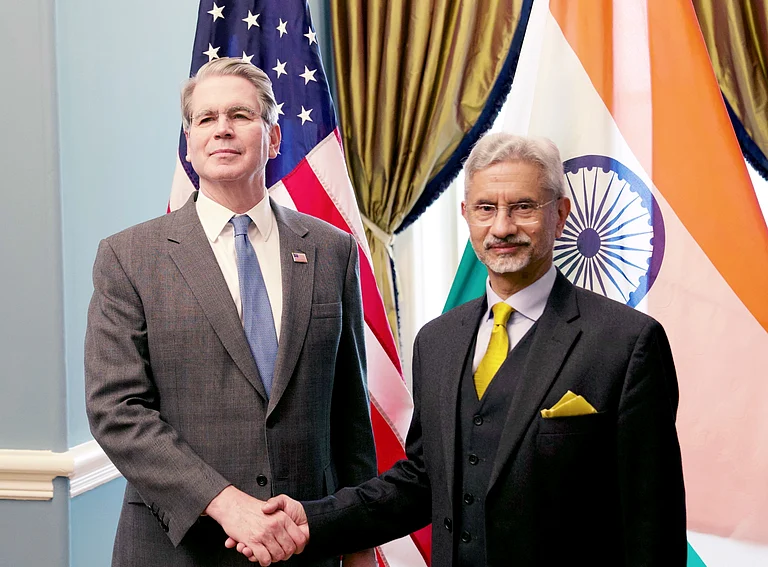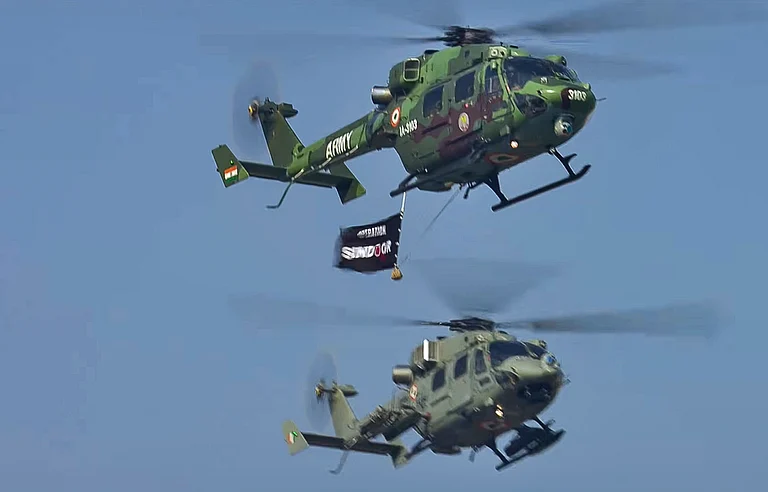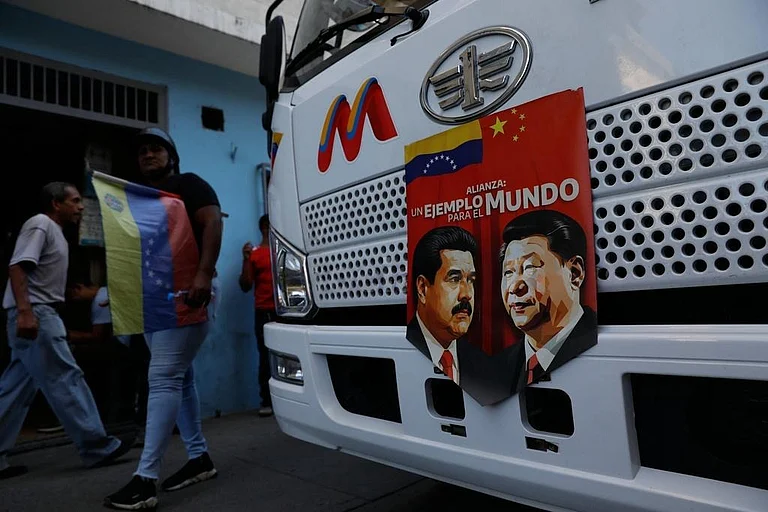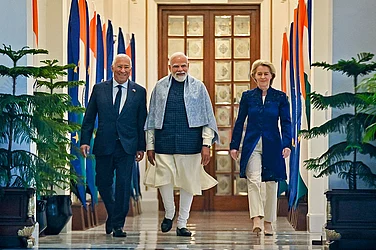US President Joe Biden earlier this year approved a highly classified nuclear strategy plan for Washington amid the increasing challenges from North Korea, China and Russia, a New York Times report said.
The US publication said that Biden approved a revised strategy in the document titled the "Nuclear Employment Guidance".
The document directed the armed forces to prepare for possible "coordinated nuclear confrontations with Russia, China and North Korea", NYT reported.
This move from the Biden administration came amid the rising nuclear advances and missile threats from North Korea, rapid expansion of China's nuclear arsenal and perceived nuclear threats from Russia.
Reportedly, the document is updated roughly every four years or so and only very few security officials and Pentagon commanders are given its hard copies.
NYT reported that Pranay Vaddi, senior director for arms control, disarmament and nonproliferation on the National Security Council -- at a forum hosted by the Arms Control Association this June -- said that Biden had issued an updated nuclear weapons employment guidelines.
Vaddi warned that North Korea, Beijing and Moscow were expanding and expanding their nuclear weapons stockpiles at a "breakneck" speed.
The official was cited to be saying that Washington will have to adjust its posture and capabilities to make sure that it can avoid or prevent the growing threats. The US is also making efforts to adapt what Vaddi termed to be the realities of a "new" nuclear era.
"The President recently issued updated nuclear-weapons employment guidance to account for multiple nuclear-armed adversaries," NYT quoted Vipin Narang -- former acting assistant Secretary of Defence for space policy -- as saying.
Narang said that the revised guidance accounted for "the significant increase in the size and diversity" of China's nuclear arsenal.
Meanwhile, Russia and North Korea signed a "comprehensive strategic partnership" treaty during Russian President Vladimir Putin's visit to Pyongyang in June.
Notably, Putin also meet with the Chinese premiere Li Qiang on Wednesday and hailed the growing trade relations as Moscow becomes increasingly dependent on Beijing for political and economic support.
“Our trade relations are developing, developing successfully ... The attention that the governments of the two countries on both sides are paying to trade and economic ties is yielding results,” Putin said at the meeting in the Kremlin.
He also said that Russia and China have developed “large-scale plans” for economic and other projects.
“Chinese-Russian relations are at an unprecedentedly high level," said Li, who earlier had met with his Russian counterpart, Prime Minister Mikhail Mishustin.
Washington has many times denounced in the past the support Beijing gives to Russia's military industrial base.


























